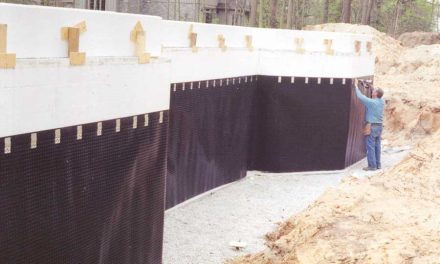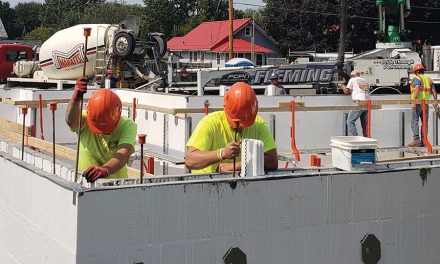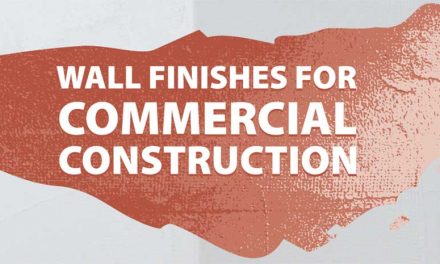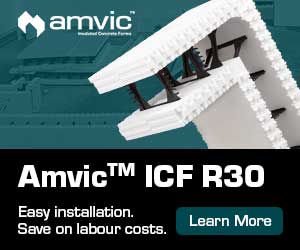Starting out on a construction venture, whether it is a single-family home, or a multi-story office building, the process is pretty much the same, albeit at a different magnitude. Developers, both commercial and residential, to a large extent recognize the need to engage design professionals and contractors with the specific experience needed for their particular venture. Unfortunately, this is not always the case in the private residential sector, but it is no less important to consider design professionals and contractors with appropriate experience.
Architects, designers and engineers, and contractors are fairly easy to find if the chosen construction method is wood frame. However, this is not necessarily the case when it comes to ICF construction. While ICF has experienced a surge in public awareness and popularity in recent years, for many it is still an unknown, and therefore carries with it some reservations. However, this needn’t be the case, and involving ICF-experienced architects, designers, engineers, and contractors can greatly allay any concerns that the homeowner client might have.
Involving ICF-experienced design professionals from the outset of a project creates a comfort level with both the design process and the system. They will know what products are available, for both vertical and horizontal elements, and will have a good understanding of how they can be integrated into the design. Most architects and designers have a preference for the engineer they prefer to work with, and with good reason. Typically, there will be a history of past projects between them, and any communication issues will have been worked out in the early days of their relationship. That being said, for an architect to venture into an ICF design for the first time, having the backing and advice of an ICF-experienced engineer is invaluable.
Frequently, the first-time ICF architect/designer will be astonished at the amount of openings that can be achieved when concrete is used as the shear-resisting element. For example, a 6-inch concrete core is capable of resisting a shear force of more than 6,000 pounds per foot, which is approximately 8 times stronger than a single shear structural wood panel. This enables the design to have bigger openings, with more expansive views than is possible with wood frame construction.
The ICF-experienced engineer will have already resolved potential detail conflicts and coordination.
They will have on file an established library of ICF details that will be appropriate for the location of the project. This will be especially pertinent in a high wind or high seismic area. Rebar spacing is sensitive to both of these conditions, and that would be known and understood by the ICF-experienced engineer.
It’s reasonable to expect an ICF-experienced engineer to be familiar with the ICF products currently available in the market. Most products differ in some way from others, whether it be web spacing, block height, or some other feature. Also, local installer product preferences are important to know, so that the selected product will be readily accepted by the local contractor pool.
Another important consideration is to ensure that the selected ICF product is readily available in the locality of the project. The major national brands have extensive distribution networks. That being said, during the Covid shutdown periods recently experienced, supply chain issues were prolific, and what was previously a two-week availability turned into a possible availability several weeks out.
Thankfully, most of those issues have been resolved as of this time of writing.
A major consideration of availability is the effectiveness of the selected ICF-experienced contractor.
Questions that need to be asked are:
- Do they stock product? To run short of product in the middle of an install, only to find out that top-up material is weeks out, can be devastating to a project’s continuity.
- Do they rent wall bracing?
- Does the contractor have accessory items in stock, such as spray foam, foam guns, ledger brackets, and other pertinent hardware?
- For owner-builders, does the contractor offer installation training and support?
The project engineer will work closely with the project contractor, both at the engineering design stage, and at the post permit stage. The engineer’s concrete design submittal will be under scrutiny at plan check, therefore experience in conveying the elements of the design through clear structural framing plans, details, and notes, is essential. The building codes have explicit requirements regarding structural concrete design, and the ICF-experienced engineer will be thoroughly familiar with those requirements.
The same applies to conveying the design to the contractor, or the owner-builder. Post-permit dialogue is essential, to minimize misunderstandings should they arise. It’s essential that the engineer and the contractor communicate in a practical and clear manner. The engineer will have an intimate understanding of concrete design, and he must therefore be capable of conveying the results of that to the contractor or owner.
In recent years, consideration has been given to a complete concrete building envelope. This would of course include the roof, whether flat or pitched. The ICF-experienced engineer will be familiar with these horizontal and/or pitched solutions, and forming systems, and would have experience in their application to the project. Roof pitch is an important factor, as above a 5:12 pitch, a top form will most likely be needed to prevent the concrete from slumping down the slope. Temporary shoring may be needed, depending on the system adopted. The ICF-experienced engineer will be capable of recognizing this need, and should be capable of designing a suitable temporary shoring support system.
In conclusion, there is no doubt that an ICF project will benefit from involving both ICF-experienced design professionals and ICF-experienced contractors. This benefit will manifest in the client’s peace of mind that he/she is working with informed participants who have a clear understanding of how they need to perform to achieve a successful project outcome.

Dave Gowers
After graduating from UK’s London University 51 years ago, Dave Gowers acquired extensive experience in concrete construction through diverse commercial, residential, and industrial projects, up to $1 billion in value, in several countries. He is well-versed in concrete formwork and shoring systems, and over the past 18 years has produced structural design solutions for over 150 ICF projects, both residential and commercial. Dave resides in Southern Oregon with his wife and business partner, Jennifer. Dave holds a PE license in 14 states/territories and is the principal of Dave Gowers Engineering LLC, and co-principal of Cascade ICF LLC. Reach him at 541-660-9661 or dave@dgengineering.com.













